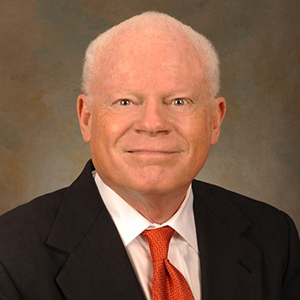Ten years ago, PERC embarked on a journey that would indelibly impact the lives of many environmentalists, as well as the face and direction of our organization. The idea was borne out of PERC’s passion to bring management principles, economics, property rights, and markets to the environmental movement. PERC’s Enviropreneur™ Institute, formerly known as the Kinship Conservation Institute, is the embodiment of that vision and is now entering its eleventh year. The breadth of interests and organizations represented in the ten incantations of the Institute show a dedication and purpose to environmental conservation and liberty not likely equaled anywhere else in the world. Indeed, the sun never sets on the Enviropreneur Empire!
As the retiring director of the Institute, it seems an appropriate time to reflect on the past and future of this high-energy, hands-on, and often life-changing program. But first thing’s first: What exactly is an enviropreneur? It is an entrepreneur who makes environmental assets out of environmental problems. An enviropreneur sees an opportunity where others see waste. An enviropreneur sees a chance to do well while doing good. But how does this all come about?
Welcome to Montana
So you have spent the past 15 years working a somewhat, but not completely, satisfying job for an environmental organization, when suddenly, you find yourself in Bozeman, Montana, with some group called PERC. Here you greet your fellow enviropreneurs, and before you know it, you’re in a van heading toward the Gallatin Mountains. You are stunned by the simple beauty of the green landscape and the stark contrast of snow-capped peaks in all directions. “Is this real?” you ask yourself, as if the 5,000 foot elevation has you seeing things.
You head into a canyon that looks like a movie set from A River Runs Through It. You cross the Gallatin River and veer off onto a dirt road—your second thoughts turning to thirds and fourths. You crest a hill to find hundreds of bison roaming on a field of green that runs for miles until it hits the sky. You are now on Ted Turner’s 114,000-acre Flying D Ranch.
It is here, at a place called Cow Camp, where you spend the next four days with 15 other enviropreneurs, many of whom you develop relationships with that will last your entire career. You rise early to scope for elk, participate in one-on-one discussions with other environmental entrepreneurs, listen to lectures from an array of environmental scholars and business leaders, and take part in honest discussion with your peers on how to make environmental entrepreneurship a reality. As night falls, you crash in your bed as the coyotes howl nearby.
Going Public
The four days at the Flying D end as quickly as they began, and the learning now shifts from a private version of the park—“Ted’s Yellowstone”—to the public version. You head to Yellowstone National Park with your tour guide and enviropreneur extraordinaire, Hank Fischer. Hank is the former manager of the wolf compensation fund for Defenders of Wildlife. You hear the inspiring story of how his group raised funds to compensate landowners for livestock losses due to wolves. His story turns the learning, lectures, and discussions into something real, and you begin to grasp what it means to be an enviropreneur.
The next seven days are spent back in Bozeman working with such folks as a former president of Ogilvy Mather, a senior partner at Accenture, the president of the Searle Freedom Trust, the managing director of an angel investing group, a host of world-class university professors, and former enviropreneur fellows who come to tell their stories. You talk, you listen, you think, you ponder, you question, you are mentored, you mentor, you “epiphanate”—a term created by Kathy Viatella (class of 2001) to epitomize the open mindedness of the Institute.
It all ends too soon. Tired to the bone, but full of fresh ideas, you are now armed with new tools and knowledge, several lifelong friends and colleagues, and an even deeper affection for the environment. You are an enviropreneur.
Law of the Jungle
The Institute is usually opened with an excerpt from Rudyard Kipling’s The Jungle Book, but I use it now to close, hoping it embodies the ideas that lurk, subtly yet powerfully, ’neath the Institute. Perhaps it will inspire a future fellow to be a better conservationist, an enviropreneur, a recharged steward of all the bounty that has been tossed in your nest.
Enviropreneurship has been taking the environmental movement by storm, in large part due to the work of the Institute and the talented individuals who have gone through it. (See, for example, what some of our first crop of enviropreneurs are doing today in “Where Are They Now,” page 11). While the Enviropreneur™ Institute has left its mark on the environment, it has had an even bigger impact on PERC. The program and its incredible lot of fellows have opened doors for PERC that could only have been wished for previously—arenas that were closed and audiences with no ears. A few years ago PERC changed its name from the Political Economy Research Center to the Property and Environment Research Center. The Institute is the embodiment of that change. This is PERC’s Enviropreneur™ Institute.
Epilogue
Over the past 10 years, there have been a number of people who have played pivotal roles. The Enviropreneur™ Institute has been a team effort with roles mingled and tasks taken on by whoever was closest to the handle. Chief among those is Bruce Yandle, PERC senior fellow and dean emeritus of the business school at Clemson University, who had the original vision and fortitude to bring business ideas to the environmental movement. Another is Carol Ferrie, or as one fellow affectionately called her, “Mom,” who poured herself into every aspect and facet of the Institute. In addition, the many donors—including: the Alexander Foundation, S. D. Bechtel Jr. Foundation, Cook Ranches, D & D Foundation, the William H. Donner Foundation, Fieldstead & Co., Kinship Foundation, Claude R. Lambe Charitable Foundation, Fred Maytag Family Foundation, Ohrstrom Foundation, Oram Foundation, and the Randolph Foundation—whose sacrifices have made this feast possible, cannot be thanked enough. And finally, without the Searle Family, Terry Anderson, Wally Thurman, and the entire team of faculty giving tirelessly of their time and soul, this whole thing would still be just a dream.
Looking back, I see it’s truly been from “good to great.” As the Institute moves forward and continues to be a program that educates environmentalists to become enviropreneurs, I have no doubt that Kurt Schnier, PERC senior research fellow and associate professor of economics at Georgia State University, and Reed Watson, PERC’s director of applied programs, will masterfully lead the program into the future.




